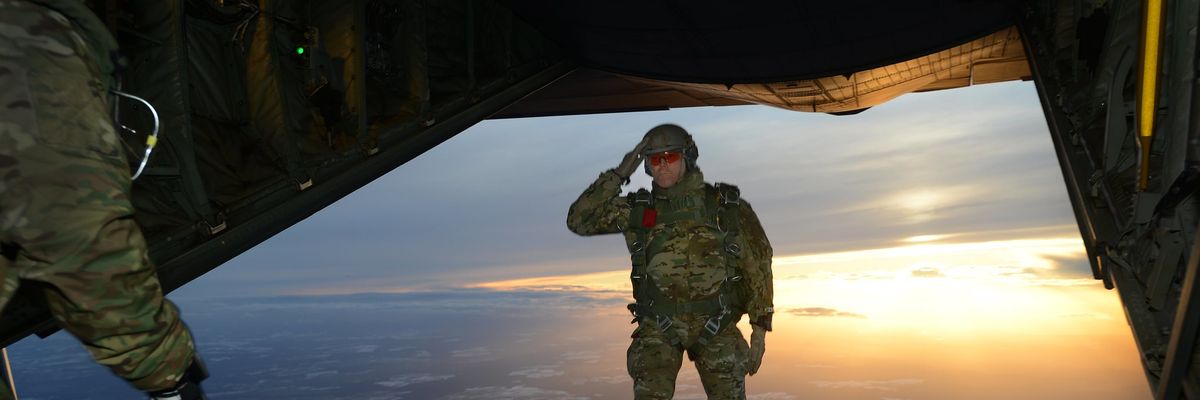“For SOF, we’re going to be focused on campaigning, especially in the Grey Zone — below the threshold of conflict,” said Gen. Richard D. Clarke, the chief of U.S. Special Operations Command late last month, using the acronym for Special Operations forces. “Our SOF have partnered with European allies since before 2014, focused on resistance and building resistance networks... But that is not just in the Baltics — Latvia, Lithuania, and Estonia — that’s through the rest of Europe.”
This “focus” has led America’s most elite troops to fan out across Europe, operating from one end of the continent to the other. In 2021, U.S. Special Operations forces — Navy SEALs, Army Green Berets, and others — were deployed in at least 33 European countries, including Albania, Austria, Belgium, Bosnia and Herzegovina, Bulgaria, Croatia, Cyprus, the Czech Republic, Denmark, Estonia, Finland, France, Georgia, Germany, Greece, Hungary, Italy, Kosovo, Latvia, Lithuania, Moldova, Montenegro, the Netherlands, Norway, Poland, Romania, Serbia, Slovenia, Spain, Sweden, Switzerland, Ukraine, and the United Kingdom.
This accounts for a significant proportion of U.S. Special Operations forces’ global activity. Roughly 11 percent of U.S. commandos deployed overseas this year were sent to Europe, the largest percentage of any region in the world except for the Greater Middle East and Africa.
In May, for example, U.S. Naval Special Warfare operators and Army Green Berets traveled to Hungary to train alongside elite Austrian, Croatian, Hungarian, Slovakian, and Slovenian troops as part of Black Swan 21, a training exercise focused on enhancing “peer-to-peer deterrence and resiliency of alliances and partnerships” in Europe. “I think this is the manifestation of everything that is great about NATO, several NATO allies coming together and even non-NATO partners coming together to share their tactics, techniques, procedures, and lessons learned so that we’re all better,” said U.S. Air Force Maj. Gen. David H. Tabor, the commanding general of U.S. Special Operations Command Europe, of Black Swan 21.
The next month, Green Berets from the 10th Special Forces Group took part in a live-fire training exercise alongside U.K. Royal Marines in a forest near Stuttgart, Germany. In June and July, Green Berets trained with Serbian Police from that country’s Special Anti-terrorist Unit. In September, Navy SEALs worked with Cypriot Army Special Forces. And last month, Green Berets from the 19th Special Forces Group conducted a joint training exercise with elite Latvian and Estonian troops.
Clarke’s mention of the so-called Grey Zone and building “resistance networks” suggests an emphasis on the special operations missions authorized under “Section 1202 Authority,” an obscure provision which first appeared in the 2018 National Defense Authorization Act and is “used to provide support to foreign forces, irregular forces, groups, or individuals” taking part in irregular warfare. Little has ever been revealed about 1202 missions, but they are explicitly focused on near-peer competitors and Grey Zone operations, which could include, for example, support for proxy forces in Ukraine. During a 2019 House Armed Services Committee hearing, in fact, Clarke said that the U.S. capacity “to train foreign forces, irregular forces, with the 1202 authority” would be crucial to supporting conventional troops in a conflict with Russia.
This year, Tabor has repeatedly traveled to Ukraine where a conflict has simmered and flared since 2014, following the Russian annexation of Crimea. “We remain fully committed to Ukrainian sovereignty, territorial integrity, and independence,” he said while attending that country’s Independence Day festivities in August. During that trip he met with leadership from Ukrainian Special Forces and, according to an official statement, discussed “continued partnership in order to increase readiness and interoperability within the region.”
















